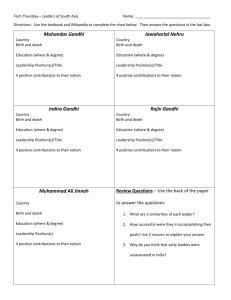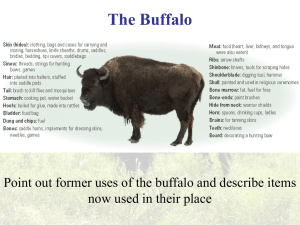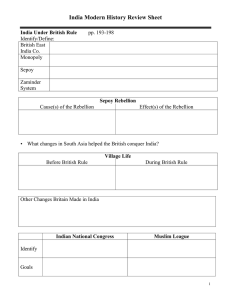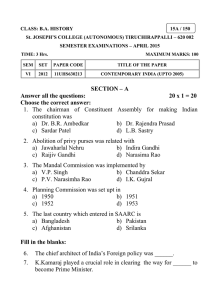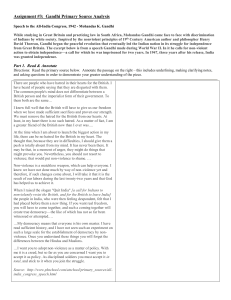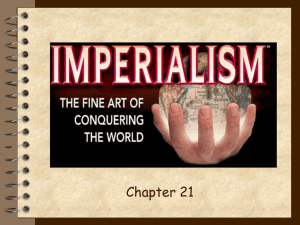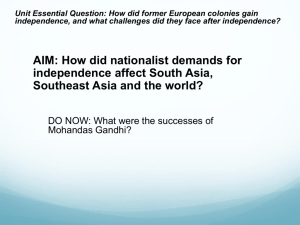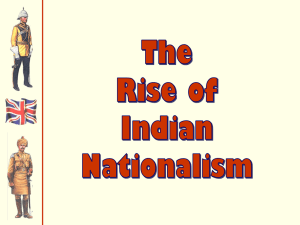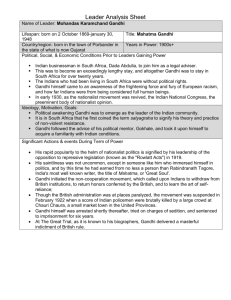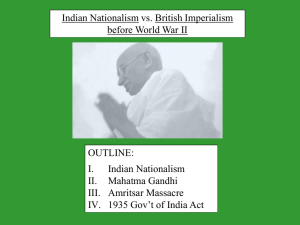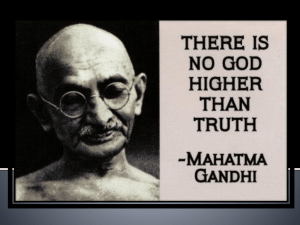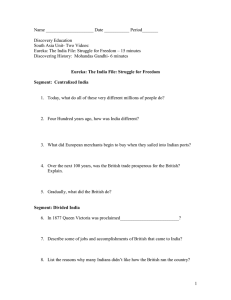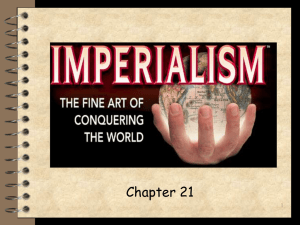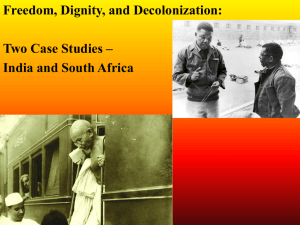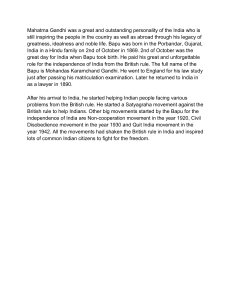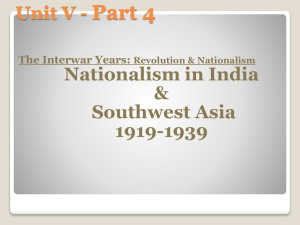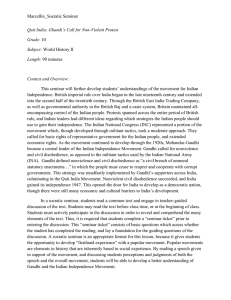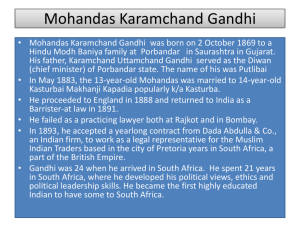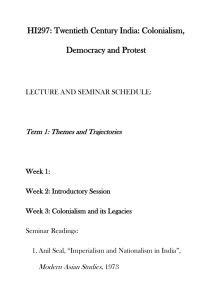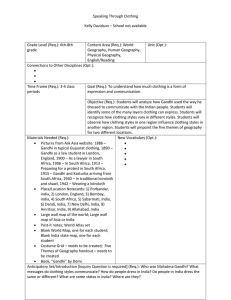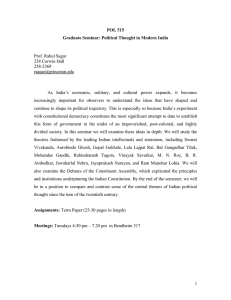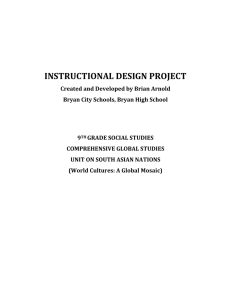File - Tennessee Geographic Alliance
advertisement
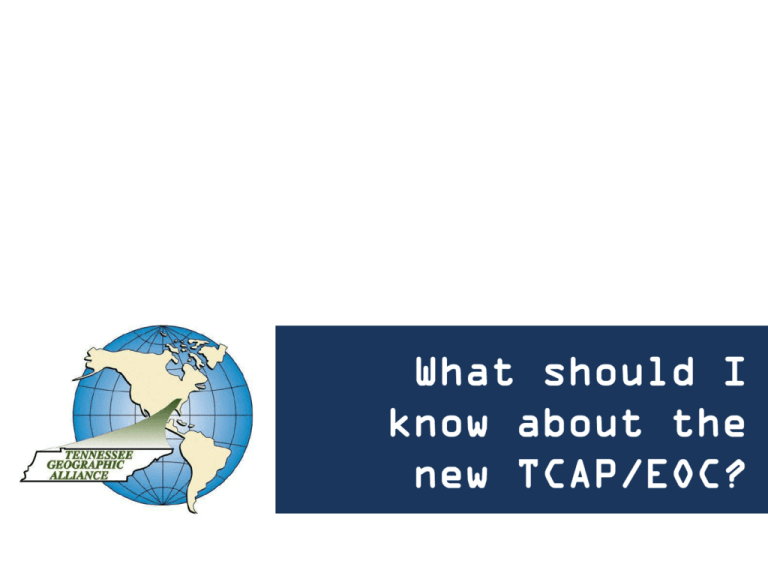
What should I know about the new TCAP/EOC? 2015-2016 Testing Window http://www.tn.gov/assets/entities/education/attachments/tst_summative_assessment_calendar_2015-16.pdf Part 1: Extended Response Standards: • Find the grade-level documents that contain information about what the essay portion of the operational test will assess. Notice that students might be called on using one or many the following to craft a written response: • Informational text (primary and secondary sources) • Stimuli: charts, diagrams, map, graphs, photographs, political cartoon, etc… • Prior knowledge Part 1: Extended Response Standards: • Extended Writing Rubrics can be found under the ‘SCORING AND ACCOUNTABILITY’ option of the Social Studies Assessments page. Notice that there is a column for ‘Social Studies Literacy’ and ‘Literacy in the Social Studies’. What do you think is the difference? What can you do to prepare? • Cross walk the ‘Literacy in the Social Studies’ with the ELA Rubric. • Agree on a framework for writing: TDOE Frameworks for writing: POW TREE (+C) Organization for Argumentative Writing – T= Topic/Thesis: What is my claim? – R= 3 supporting reasons from the text/history: Why did I make this claim? – E= Evidence: How can I prove it with evidence from the text? – E= Ending: Did I wrap it up tight? – +C= Counter claim – What do others say? How would I respond to what others think? POW TIDE Organization for Expository Writing – T = Topic/Thesis – I = Importance Evidence: Use evidence based terms. Cite your sources. Include at least one piece of evidence in each body paragraph – D = Detailed examination: Analyze the evidence you have provided – E = Ending: Did I wrap it up tight? Getting started As a student, use the ‘POW’ method to help you prepare for your grade band’s extended writing prompt. P= Pull apart the prompt: •What am I being asked to do? •What should I write about? O= Organize: •How many paragraphs should you use? •What should your paragraphs be about? Do/What 1 Do/What 2 Do/What… W= Write Let’s practice! • Mohandas Gandhi had a major impact on his country’s development. Describe Gandhi’s goals for India, how he set out to achieve those goals and how his philosophy reflected both Indian and western traditions. Use evidence from these sources and your content knowledge to support your answer. Let’s practice! • Mohandas Gandhi had a major impact on his country’s development. Describe Gandhi’s goals for India, how he set out to achieve those goals and how his philosophy reflected both Indian and western traditions. Use evidence from these sources and your content knowledge to support your answer. • Do What Describe (Gandhi's) 1. Goals for India 2. Setting out to achieve those goals 3. Philosophical reflection of Indian and Western Traditions How do you structure a paragraph? • • • • • • Topic sentence Prior Knowledge Evidence of Support from Resource #1 Evidence of Support from Resource #2 Quote: “According to the text provided, …” Conclusion sentence: “This demonstrates…(tie it into the topic sentence/prompt)” Part 2: Multiple Choice • Field Test Frameworks can offer you a glimpse of the percentage of test items and a range of numbers of test items for each reporting categories on Part 2. • No more stand-alone questions that assess recall. • No more DBQs where students can find the answer in either text/stimulus that is linked with the question. • Students must use prior knowledge with text/stimulus in order to answer a question. Standard- 6.38 Describe the diffusion of Buddhism northward to China during the Han Dynasty. (C, G, H) Does the question meet the standard? What prior knowledge will the students need to answer the question? What do you notice about the answer choices? Verb Descriptors Chart Key Words in Prompt Tasks Writing Strategy Explain, Discuss, Explore Make an event, a process, a problem, or a relationship clear and understandable. Include Examples and Reasons Explanation Identify, Show, Tell About, What is/are Explain the distinguishing characteristics of a subject or the meaning of a term Classification (Identification/Description/ Definition Compare, contrast, discuss similarities and differences Show likenesses and differences. Support your points with details and examples. Classification (Comparison and Contrast) Analyze, who, causes and effects, examine, show how, explain why, in what way(s) Show causes and effects or break a subject down into its parts, showing how they function and relate to the whole. Use facts and examples. Analysis Trace, summarize, outline Give a condensed description of an issue, and event, or a sequence of events. Omit minor details. Summary Evaluate, pros and cons, in your opinion, in your judgment Present your judgment on an issue, an event, or a historical or political figure. State your criteria, and evaluate the subject on the basis of each. Synthesis Interpret Consider the significance of a subject in the context of your total knowledge, and explain it in your own words. Interpretation
